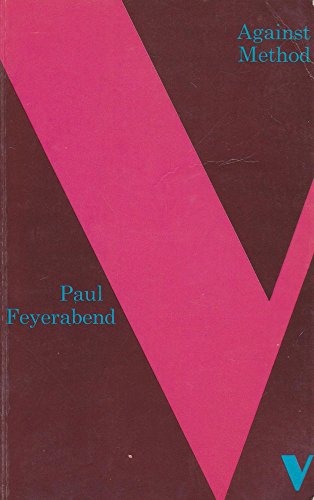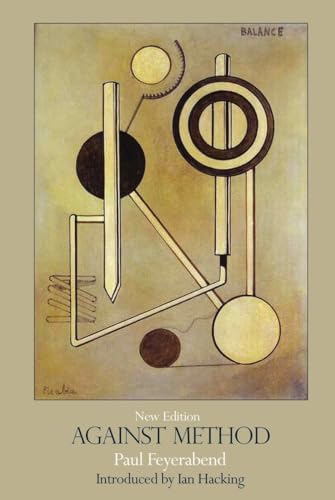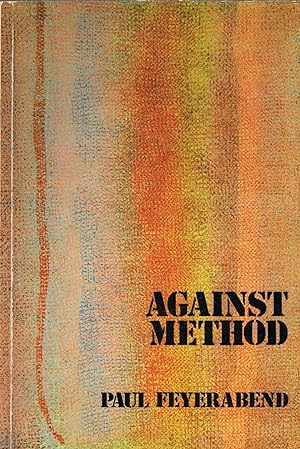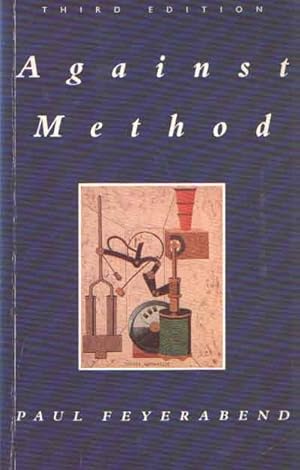against method outline anarchistic di feyerabend paul (35 risultati)
Filtri di ricerca
Tipo di articolo
- Tutti i tipi di prodotto
- Libri (35)
- Riviste e Giornali (Nessun altro risultato corrispondente a questo perfezionamento)
- Fumetti (Nessun altro risultato corrispondente a questo perfezionamento)
- Spartiti (Nessun altro risultato corrispondente a questo perfezionamento)
- Arte, Stampe e Poster (Nessun altro risultato corrispondente a questo perfezionamento)
- Fotografie (Nessun altro risultato corrispondente a questo perfezionamento)
- Mappe (Nessun altro risultato corrispondente a questo perfezionamento)
- Manoscritti e Collezionismo cartaceo (Nessun altro risultato corrispondente a questo perfezionamento)
Condizioni Maggiori informazioni
Legatura
Ulteriori caratteristiche
- Prima ed. (1)
- Copia autograf. (Nessun altro risultato corrispondente a questo perfezionamento)
- Sovracoperta (5)
- Con foto (12)
- Non Print on Demand (32)
Lingua (3)
Spedizione gratuita
Paese del venditore
Valutazione venditore
-
Against Method: Outline of an Anarchistic Theory of Knowledge
Da: Bay State Book Company, North Smithfield, RI, U.S.A.
EUR 8,94
Convertire valutaGratis per la spedizione in U.S.A.Quantità: 1 disponibili
Aggiungi al carrelloCondizione: acceptable. The book is complete and readable, with all pages and cover intact. Dust jacket, shrink wrap, or boxed set case may be missing. Pages may have light notes, highlighting, or minor water exposure, but nothing that affects readability. May be an ex-library copy and could include library markings or stickers.
-
Against Method : Outline of art Anarchistic Theory of Knowledge
Da: Better World Books: West, Reno, NV, U.S.A.
EUR 11,44
Convertire valutaGratis per la spedizione in U.S.A.Quantità: 1 disponibili
Aggiungi al carrelloCondizione: Good. Former library book; may include library markings. Used book that is in clean, average condition without any missing pages.
-
Against Method: Outline of an Anarchistic Theory of Knowledge
Da: ebooks Keystone, Reading, PA, U.S.A.
EUR 8,95
Convertire valutaEUR 2,59 per la spedizione in U.S.A.Quantità: 1 disponibili
Aggiungi al carrelloCondizione: good. This book is in good condition, with minimal signs of wear and tear.
-
Against Method: Outline of an Anarchistic Theory of Knowledge
Da: Goodwill of Silicon Valley, SAN JOSE, CA, U.S.A.
EUR 8,95
Convertire valutaEUR 3,45 per la spedizione in U.S.A.Quantità: 1 disponibili
Aggiungi al carrelloCondizione: acceptable. Supports Goodwill of Silicon Valley job training programs. The cover and pages are in Acceptable condition! Any other included accessories are also in Acceptable condition showing use. Use can include some highlighting and writing, page and cover creases as well as other types visible wear such as cover tears discoloration, staining, marks, scuffs, etc. All pages intact.
-
Against Method: Outline of an Anarchistic Theory of Knowledge
Da: de Wit Books, HUTCHINSON, KS, U.S.A.
EUR 8,91
Convertire valutaEUR 4,32 per la spedizione in U.S.A.Quantità: 1 disponibili
Aggiungi al carrelloSoft cover. Condizione: Fair. Cover crease; Fair to Good, unmarked Paperback.
-
Against Method: Outline of an Anarchistic Theory of Knowledge
Da: de Wit Books, HUTCHINSON, KS, U.S.A.
EUR 8,91
Convertire valutaEUR 4,32 per la spedizione in U.S.A.Quantità: 1 disponibili
Aggiungi al carrelloSoft cover. Condizione: Fair. Cover crease; Fair to Good, unmarked Paperback.
-
Against Method: Outline of an Anarchistic Theory of Knowledge
Da: Strand Book Store, ABAA, New York, NY, U.S.A.
EUR 7,57
Convertire valutaEUR 6,91 per la spedizione in U.S.A.Quantità: 1 disponibili
Aggiungi al carrelloPaperback. Condizione: Good.
-
Against Method: Outline of an Anarchistic Theory of Knowledge
Da: Uncle Hugo's SF/Uncle Edgar's Mystery, Minneapolis, MN, U.S.A.
EUR 7,57
Convertire valutaEUR 6,92 per la spedizione in U.S.A.Quantità: 1 disponibili
Aggiungi al carrelloSoft cover. Condizione: Good. 3rd Edition. There is some corner wear and a bit of edge wear and scuffing; there is sticker residue on the back cover.
-
Against Method: Outline of an Anarchistic Theory of Knowledge
Da: Solr Books, Lincolnwood, IL, U.S.A.
EUR 8,43
Convertire valutaEUR 6,90 per la spedizione in U.S.A.Quantità: 1 disponibili
Aggiungi al carrelloCondizione: good. This book is in Good condition. There may be some notes and highligting but otherwise the book is in overall good condition.
-
Against Method : Outline of an Anarchistic Theory of Knowledge
Da: Better World Books Ltd, Dunfermline, Regno Unito
EUR 9,99
Convertire valutaEUR 9,22 per la spedizione da Regno Unito a U.S.A.Quantità: 1 disponibili
Aggiungi al carrelloCondizione: Good. Ships from the UK. Former library book; may include library markings. Used book that is in clean, average condition without any missing pages.
-
Against Method: Outline of an Anarchistic Theory of Knowledge
Da: WorldofBooks, Goring-By-Sea, WS, Regno Unito
EUR 16,48
Convertire valutaEUR 6,46 per la spedizione da Regno Unito a U.S.A.Quantità: 2 disponibili
Aggiungi al carrelloPaperback. Condizione: Very Good. The book has been read, but is in excellent condition. Pages are intact and not marred by notes or highlighting. The spine remains undamaged.
-
Against Method: Outline of an Anarchistic Theory of Knowledge
Da: Brook Bookstore On Demand, Napoli, NA, Italia
EUR 21,79
Convertire valutaEUR 5,50 per la spedizione da Italia a U.S.A.Quantità: Più di 20 disponibili
Aggiungi al carrelloCondizione: new.
-
Against Method: Outline of an Anarchistic Theory of Knowledge
Da: Salsus Books (P.B.F.A.), Kidderminster, Regno Unito
Membro dell'associazione: PBFA
EUR 10,69
Convertire valutaEUR 17,29 per la spedizione da Regno Unito a U.S.A.Quantità: 1 disponibili
Aggiungi al carrelloSoft cover. Condizione: Good. 2nd Edition. 339pp paperback, good.
-
Against Method: Outline of an Anarchistic Theory of Knowledge
Da: HALCYON BOOKS, LONDON, Regno Unito
EUR 7,93
Convertire valutaEUR 20,75 per la spedizione da Regno Unito a U.S.A.Quantità: 1 disponibili
Aggiungi al carrelloPaperback. Condizione: Very Good. ALL ITEMS ARE DISPATCHED FROM THE UK WITHIN 48 HOURS ( BOOKS ORDERED OVER THE WEEKEND DISPATCHED ON MONDAY) ALL OVERSEAS ORDERS SENT BY TRACKABLE AIR MAIL. IF YOU ARE LOCATED OUTSIDE THE UK PLEASE ASK US FOR A POSTAGE QUOTE FOR MULTI VOLUME SETS BEFORE ORDERING.
-
EUR 14,49
Convertire valutaEUR 14,92 per la spedizione da Regno Unito a U.S.A.Quantità: 1 disponibili
Aggiungi al carrelloCondizione: Good. This is an ex-library book and may have the usual library/used-book markings inside.This book has soft covers. In good all round condition. Please note the Image in this listing is a stock photo and may not match the covers of the actual item,400grams, ISBN:0860917002.
-
Against Method: Outline of an Anarchistic Theory of Knowledge Feyerabend, Paul
Da: boredom books, Portland, OR, U.S.A.
EUR 23,15
Convertire valutaEUR 8,65 per la spedizione in U.S.A.Quantità: 1 disponibili
Aggiungi al carrelloPaperback. Condizione: Clean & Unmarked. A very nice clean straight & tight copy. 279 pp.
-
EUR 40,07
Convertire valutaEUR 3,89 per la spedizione in U.S.A.Quantità: 1 disponibili
Aggiungi al carrelloCondizione: as new. pbk 339pp prev owner has reinforced corners with invisible tape otherwise an excellent clean tight unmarked copy as new.
-
Against Method: Outline of an Anarchistic Theory of Knowledge
Da: Ria Christie Collections, Uxbridge, Regno Unito
EUR 34,59
Convertire valutaEUR 13,81 per la spedizione da Regno Unito a U.S.A.Quantità: Più di 20 disponibili
Aggiungi al carrelloCondizione: New. In.
-
EUR 54,92
Convertire valutaEUR 3,72 per la spedizione in U.S.A.Quantità: 1 disponibili
Aggiungi al carrelloPaperback. Condizione: new. Excellent Condition.Excels in customer satisfaction, prompt replies, and quality checks.
-
Against Method: Outline of an Anarchistic Theory of Knowledge
Da: BennettBooksLtd, San Diego, NV, U.S.A.
EUR 71,79
Convertire valutaEUR 6,01 per la spedizione in U.S.A.Quantità: 1 disponibili
Aggiungi al carrellopaperback. Condizione: New. In shrink wrap. Looks like an interesting title!
-
EUR 24,89
Convertire valutaEUR 61,58 per la spedizione da Germania a U.S.A.Quantità: 1 disponibili
Aggiungi al carrelloTaschenbuch. Condizione: Neu. Neuware - Paul Feyerabend's globally acclaimed work, which sparked and continues to stimulate fierce debate, examines the deficiencies of many widespread ideas about scientific progress and the nature of knowledge. Feyerabend argues that scientific advances can only be understood in a historical context. He looks at the way the philosophy of science has consistently overemphasized practice over method, and considers the possibility that anarchism could replace rationalism in the theory of knowledge.This updated edition of the classic text includes a new introduction by Ian Hacking, one of the most important contemporary philosophers of science. Hacking reflects on both Feyerabend's life and personality as well as the broader significance of the book for current discussions.
-
AGAINST METHOD. Outline of an anarchistic * theory of knowledge
Lingua: Spagnolo
Da: Librería Torreón de Rueda, Segovia, SG, Spagna
EUR 8,00
Convertire valutaEUR 44,00 per la spedizione da Spagna a U.S.A.Quantità: 1 disponibili
Aggiungi al carrelloEncuadernación de tapa blanda. Condizione: Aceptable. . (illustratore). London. Verso Edit. 1980. 3ª edic. 20x13 cm. 339 págs. texto en inglés. # filosofía.
-
EUR 91,32
Convertire valutaEUR 3,67 per la spedizione in U.S.A.Quantità: 1 disponibili
Aggiungi al carrelloCondizione: new.
-
Against Method: Outline of an Anarchistic Theory of Knowledge
Da: BennettBooksLtd, San Diego, NV, U.S.A.
EUR 93,73
Convertire valutaEUR 6,01 per la spedizione in U.S.A.Quantità: 1 disponibili
Aggiungi al carrellopaperback. Condizione: New. In shrink wrap. Looks like an interesting title!
-
Against method : outline of art anarchistic theory of knowledge
Editore: Verso, London, 1997
Da: Bij tij en ontij ..., Kloosterburen, NL, Paesi Bassi
EUR 29,50
Convertire valutaEUR 28,50 per la spedizione da Paesi Bassi a U.S.A.Quantità: 1 disponibili
Aggiungi al carrelloPaperback, 22 cm, 197 pp. Ills.: black and white illustrations. Cond.: goed / good. ISBN: 0860916464.
-
Against Method : Outline of an Anarchistic Theory of Knowledge
Editore: NLB [New Left Books] (1975), London, 1975
ISBN 10: 0902308912 ISBN 13: 9780902308916
Lingua: Inglese
Da: Renaissance Books, ANZAAB / ILAB, Dunedin, Nuova Zelanda
EUR 89,05
Convertire valutaEUR 38,91 per la spedizione da Nuova Zelanda a U.S.A.Quantità: 1 disponibili
Aggiungi al carrelloHardcover. Condizione: Good. Condizione sovraccoperta: Good. Ex-library. Library stamps and markings, including barcode label on front panel of dust-jacket. Dust-jacket in plastic cover, taped to boards. One leaf of the "Analytical Index" (pages 15-16) is missing, and has been replaced with a photocopied facsimile leaf with adhesive tape at the inner margins. A good working or reading copy.; Second printing, August 1975 (in same year as the first edition). 339, [1 (blank)] pages. [1 leaf (pp.15-16) supplied in facsimile]. Grey boards with silver lettering on spine and front board. Silver publisher's emblem in corner of front board. Page dimensions: 208 x 135mm. This second printing was printed in Great Britain by Lowe & Brydone (Printers) Ltd. This second printing has, added beneath the blurb on the front flap of the dust-jacket, five quotes from reviews of "Against Method". The double title page also lists both the UK and USA publishers - London: NLB and Atlantic Highlands: Humanities Press. An important work in the philosophy of science. "The following essay is written in the conviction that anarchism, while perhaps not the most attractive political philosophy, is certainly excellent medicine for epistemology, and for the philosophy of science." - from the Introduction, page 17. "Modern philosophy of science has paid great attention to an understanding of scientific practice, in contrast to the earlier concentration on 'scientific method'. The work of Karl Popper, Thomas Kuhn and Imre Lakatos has provided varying accounts of what this practice is. Paul Feyerabend goes beyond this position: he argues that the most successful scientific inquiries have never proceeded according to a rational method at all. He examines in detail the arguments which Galileo used to defend the Copernican revolution in physics, and shows that this success depended not on rational argument but on a mixture of subterfuge, rhetoric and propaganda. His conclusion: 'Galileo cheated'. Claiming that anarchism must now replace rationalism in the theory of knowledge, Feyerabend argues that intellectual progress can only be achived by stressing the creativity and wishes of the scientist rather than the method and authority of science. In the latter half of the book he examines Popper's 'critical rationalism', and the attempt by Lakatos to construct a methodology which allows the scientist his freedom without threatening scientific 'law and order'. Rejecting both attempts to shore up rationalism he looks forward to the 'withering away of reason' and maintains that 'the only principle which does not inhibit progress is 'anything goes'." - from dust-jacket blurb. "A devastating attack on the claims of philosophy of science to legislate for scientific practice.' - New Society review, quoted on dust-jacket. "Feyerabend's excellent book will be as stimulating to this decade as Kuhn's was to the last." - Tribune review, quoted on dust-jacket. [References: Stanford Encyclopedia of Philosophy (online), "Paul Feyerabend" accessed November 2020 - "Instead of the volume written jointly with Lakatos, Feyerabend put together his tour de force, the book version of 'Against Method' (London: New Left Books, 1975), which he sometimes conceived of as a letter to Lakatos (to whom the book is dedicated). A more accurate description, however, is the one given in his autobiography: 'AM is not a book, it is a collage. It contains descriptions, analyses, arguments that I had published, in almost the same words, ten, fifteen, even twenty years earlier [. . .] I arranged them in a suitable order, added transitions, replaced moderate passages with more outrageous ones, and called the result "anarchism". I loved to shock people [. . .]'"].
-
Against Method : Outline of an Anarchistic Theory of Knowledge
Editore: NLB [New Left Books] (1975), London, 1975
ISBN 10: 0902308912 ISBN 13: 9780902308916
Lingua: Inglese
Da: Renaissance Books, ANZAAB / ILAB, Dunedin, Nuova Zelanda
EUR 133,58
Convertire valutaEUR 38,91 per la spedizione da Nuova Zelanda a U.S.A.Quantità: 1 disponibili
Aggiungi al carrelloHardcover. Condizione: Very Good. Condizione sovraccoperta: Very Good-. No signatures. Vertical creasing to dust-jacket spine. 10mm stain at tail of dust-jacket spine. Dust-jacket protected in archival mylar cover.; Second printing, August 1975 (in same year as the first edition). 339, [1 (blank)] pages. [1 leaf (pp.15-16) supplied in facsimile]. Grey boards with silver lettering on spine and front board. Silver publisher's emblem in corner of front board. Page dimensions: 208 x 136mm. This second printing was printed in Great Britain by Lowe & Brydone (Printers) Ltd. This second printing has, added beneath the blurb on the front flap of the dust-jacket, five quotes from reviews of "Against Method". The double title page also lists both the UK and USA publishers - London: NLB and Atlantic Highlands: Humanities Press. An important work in the philosophy of science. "The following essay is written in the conviction that anarchism, while perhaps not the most attractive political philosophy, is certainly excellent medicine for epistemology, and for the philosophy of science." - from the Introduction, page 17. "Modern philosophy of science has paid great attention to an understanding of scientific practice, in contrast to the earlier concentration on 'scientific method'. The work of Karl Popper, Thomas Kuhn and Imre Lakatos has provided varying accounts of what this practice is. Paul Feyerabend goes beyond this position: he argues that the most successful scientific inquiries have never proceeded according to a rational method at all. He examines in detail the arguments which Galileo used to defend the Copernican revolution in physics, and shows that this success depended not on rational argument but on a mixture of subterfuge, rhetoric and propaganda. His conclusion: 'Galileo cheated'. Claiming that anarchism must now replace rationalism in the theory of knowledge, Feyerabend argues that intellectual progress can only be achived by stressing the creativity and wishes of the scientist rather than the method and authority of science. In the latter half of the book he examines Popper's 'critical rationalism', and the attempt by Lakatos to construct a methodology which allows the scientist his freedom without threatening scientific 'law and order'. Rejecting both attempts to shore up rationalism he looks forward to the 'withering away of reason' and maintains that 'the only principle which does not inhibit progress is 'anything goes'." - from dust-jacket blurb. "A devastating attack on the claims of philosophy of science to legislate for scientific practice.' - New Society review, quoted on dust-jacket. "Feyerabend's excellent book will be as stimulating to this decade as Kuhn's was to the last." - Tribune review, quoted on dust-jacket. [References: Stanford Encyclopedia of Philosophy (online), "Paul Feyerabend" accessed November 2020 - "Instead of the volume written jointly with Lakatos, Feyerabend put together his tour de force, the book version of 'Against Method' (London: New Left Books, 1975), which he sometimes conceived of as a letter to Lakatos (to whom the book is dedicated). A more accurate description, however, is the one given in his autobiography: 'AM is not a book, it is a collage. It contains descriptions, analyses, arguments that I had published, in almost the same words, ten, fifteen, even twenty years earlier [. . .] I arranged them in a suitable order, added transitions, replaced moderate passages with more outrageous ones, and called the result "anarchism". I loved to shock people [. . .]'"].
-
Against Method: Outline of an Anarchistic Theory of Knowledge
Editore: NLB, London, 1976
Da: Bookcase, Carlisle, Regno Unito
EUR 59,36
Convertire valutaEUR 25,36 per la spedizione da Regno Unito a U.S.A.Quantità: 1 disponibili
Aggiungi al carrelloHard. Condizione: Very Good. Pages clean and bright. Binding firm. Light foxing to endpapers. Light spotting to top edge. Light shelf wear. Size: 8vo.
-
AGAINST METHOD: OUTLINE OF AN ANARCHISTIC THEORY OF KNOWLEDGE
Editore: NLB, London, 1975
Da: Black Swan Books, Inc., Lexington, KY, U.S.A.
EUR 133,58
Convertire valutaEUR 4,97 per la spedizione in U.S.A.Quantità: 1 disponibili
Aggiungi al carrelloHardcover. Condizione: Very Good+. Condizione sovraccoperta: Very Good+. Third Printing. Illustrated with black-and-white drawings and photographs. The dust jacket is protected by a Brodart mylar cover and is not price clipped. Not an ex-library copy. No remainder marks. No names or marks in the text. Most books shipped within 24 hours. All books mailed with Delivery Confirmation. The book's top edge is dusty and the fore edge has some minor stains. There are also a couple of stains on the front board. Very good + condition in very good + dust jacket. This printing was published in 1976. ; B&W Illustrations; 8vo.; 339 pages.
-
Against Method: Outline of an Anarchistic Theory of Knowledge
Editore: NLB / Humanities Press, London, 1975
Prima edizione
EUR 178,10
Convertire valutaGratis per la spedizione in U.S.A.Quantità: 1 disponibili
Aggiungi al carrelloCloth. Condizione: Near Fine. First Edition. Grey cloth (hardcover), silver gilt title on spine and front board, lacking dustjacket, (8.5 x 5.75 inches). First Edition ("First published 1975" stated on copyright page). 339 pages w/ Index; illustrated. Stands as a seminal work in the philosoph of science. Feyerabend's most famous and controversial book is an unapologetic challenge to scientific rationalism and methodological orthodoxy. A cornerstone of postmodern critiques of science. A clean, tight copy Size: Octavo.

















